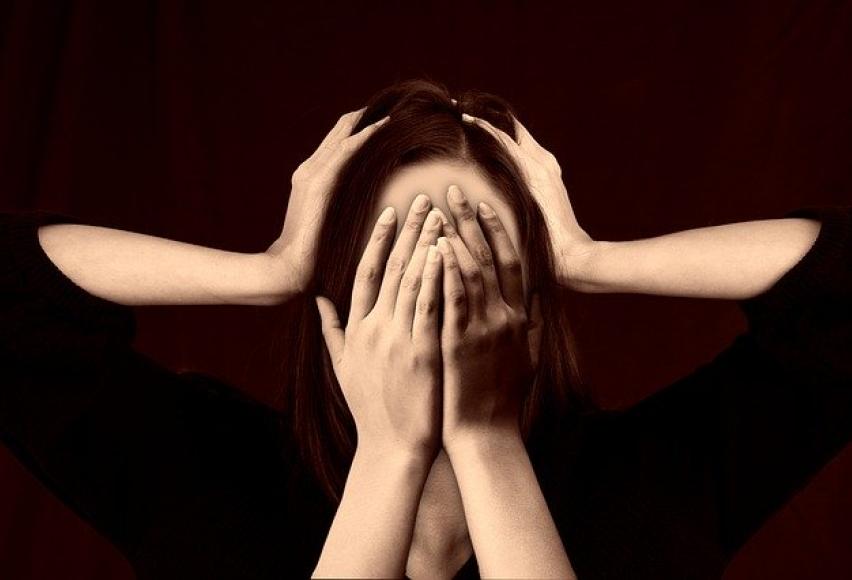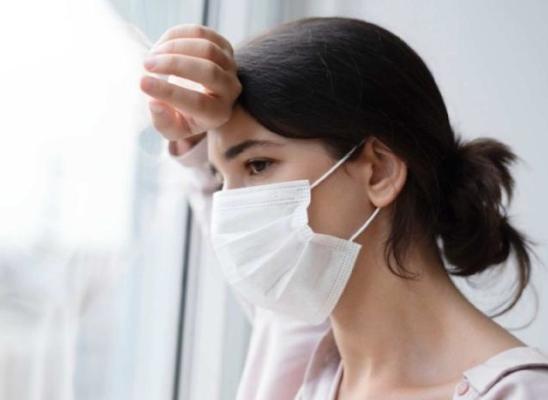COVID-19 Stress – How to Deal While Managing Compulsive Hair Pulling

Online test
Find out the severity of your symptoms with this free online test
Isolation is a hallmark symptom of trichotillomania. People who pull don’t want to be seen because they don’t want anyone to notice how their hairline is different or that they no longer have eyebrows. In therapy, we encourage people with trich to get social support. Now everyone has to isolate.
The pandemic of anxiety
Governments around the world are locking down their countries, states, and cities. It’s bad enough that a super contagious silent virus prowls the air, but now we have to adjust to a new way of doing things by staying home.
Therapists call changes in lifestyle like moving or a relationship change a “significant life event” that contributes to very high stress levels. Often these stress levels go unnoticed because people view these events as “normal.” The COVID-19 pandemic sandwiches two very high stress level significant life events: threat of disease and a complete shutdown of life.
This means adjusting to work in a whole new way or losing a job, whole families at home 24/7, parents taking over kids’ education, and finding new ways to socialize. Of course, there are many more changes than that, but you get the idea.
Anxiety and trich
People with BFRBs like trich tend to have co-occurring disorders like anxiety and depression already. Now, with the additional stress, it most likely feels worse. As anxiety increases, pulling behaviors increase and vice versa, causing a vicious cycle that can be difficult to manage. But manage, you can because knowing is half the battle.
How to deal with the anxiety during COVID-19
- Increase knowledge about the virus and health recommendations. You can find good information at Coronavirus.gov, from WHO or through WhatsApp by texting “hi” to +41 79893 1892
- Minimize time on social media and watching the news. There is a lot of conflicting information permeating the airwaves which can increase anxiety and contribute to negative emotions. So check in once a day on a trusted news site and leave it at that.
- Attend to your health by maintaining a healthy diet and regular exercise. Exercise reduces the effects of stress and that a healthy diet will keep your moods more stable.
- Consider your expectations and reduce activity a bit to help with self-care. The added stress of the virus and major life adjustments make it harder to concentrate, focus, and get things done. It’s ok, give yourself some room and lower your expectations for yourself.
- Check out meditation apps to help lower anxiety. Paid apps like Calm, Headspace, and Sanvello are offering their services free, so now might be a good time to check it out.
- Boost your knowledge and take advantage of the time for learning. Education platforms like EdX, Khan Academy, and Coursera are offering free courses.
- Take advantage of free streaming services. Consumer Reports has a list of services that are offering extended free trials or access to a larger free catalog.
- Stay social using technology. Make a targeted effort to reach out to people. Everyone is in isolation, so you won’t be the only one needing some encouragement. BFRB online support groups like those on the TLC Foundation comprehensive list can connect you with others going through the same thing. They also provide tips for starting your own.
As the COVID-19 runs its course throughout the world, keep yourself healthy by managing the anxiety proactively.
Online test
Find out the severity of your symptoms with this free online test
Start your journey with TrichStop
Take control of your life and find freedom from hair pulling through professional therapy and evidence-based behavioral techniques.
Start Now



